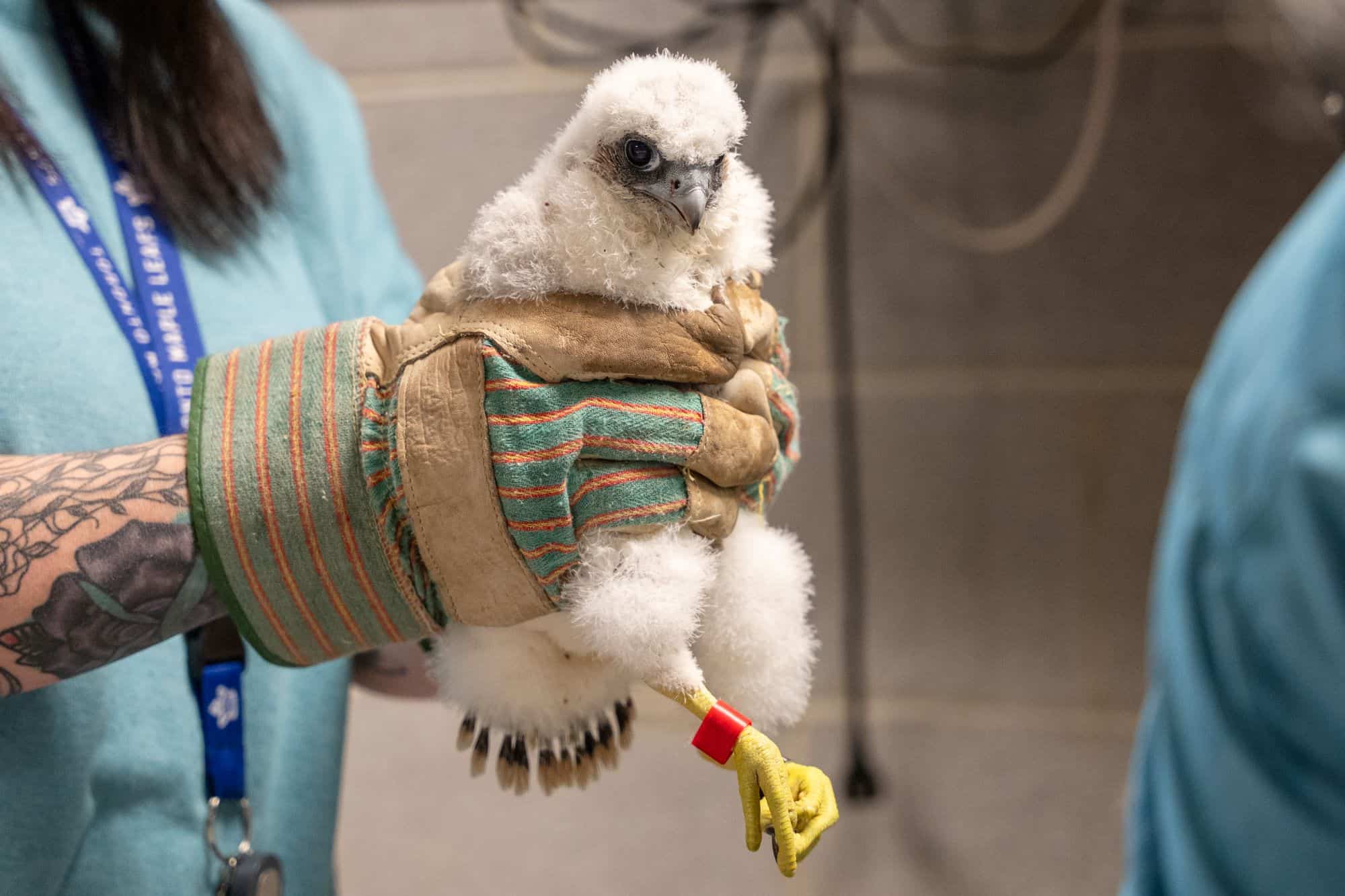Peregrine falcon hatched at Lakeridge Health Oshawa
Published June 13, 2024 at 12:09 pm

Oshawa’s resident peregrine falcons have welcomed their newest family member, Echo, who just hatched at Lakeridge Health.
The Falcon family has called the hospital home since 2014. The parents return every spring to nest on the roof. The last pair of chicks, Olive and Elding, were born last May.

Echo’s older sister Olive. – Lakeridge Health
Though peregrines typically lay between three and four eggs, this year they only welcomed one new chick, Echo. Shortly after he hatched, the Canadian Peregrine Foundation carefully pulled him from the nest to look him over.
The checked his weight and health and measured his talons. They banded Echo so he can later be tracked once he leaves the nest. So far he’s taken small flights out with his parents.
“Big shoutout to our friends at the Canadian Peregrine Foundation and the Ministry of Natural Resources for teaming up with us to keep this feathered family safe, happy, and ready for their flying adventures,” the hospital wrote.
This recovery took a lot of work for humans to accomplish. Marion Nash of the Canadian Peregrine Foundation credited the hospital with the success of the Lakeridge nest. “Their tremendous support has made a big difference in the survival of these falcons and management of this nest site,” she told Insauga on banding day last year.

Echo during his examination. – Lakeridge Health
The nesting site on the hospital was chosen by the falcons to begin with. Staff were working on the roof years ago when resident falcon Alfrieda and her mate attacked them. The hospital built a protective nest box for them which they’ve returned to every year since. This year they arrived in late March.
Now when the falcons return, the hospital postpones all work on the roof. If they really have to go up there, they bring a distraction broom for the birds to attack.
Peregrines mate for life following a dramatic courtship where the falcons fly around each other acrobatically including spirals and deep dives. Often the male will give the female some prey, at which time the female flies upside down to eat from the male’s talons.
During the breeding season, the pair grows fiercely territorial, with each pair living at least a kilometre apart, though often much more.
Peregrines will fight creatures much larger than themselves to protect their eggs including owls, herons, and even foxes, wolves and bears if their nest is near the ground. They’ve been recorded killing Bald and Golden Eagles in defence of their nests, both of which are more than twice the falcon’s size.
Peregrines usually lay their eggs between February and March, which they incubate for about a month. The chicks will be capable of flight about six weeks later and leave the nest a few months after that.
The hospital operates a 24-hour livestream of the falcons’ nest for curious birdwatchers.
INdurham's Editorial Standards and Policies




